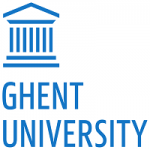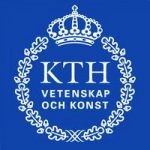项目介绍
As a PhD researcher, you will study how the adaption of everyday buildings (spatial interventions) is related to their perception (heritage assessment), and how both phenomena change over time.
Jobdescription
The reuse of existing buildings is increasingly central to architectural practice. At the European level, the ‘Renovation Wave’ (part of the Green Deal) advocates improving the energy performance, climate resilience and affordability of buildings. Also, at the local level, governments encourage the improvement of individual homes by subsidising sustainable measures. Sustaining and improving buildings is not a new phenomenon, but the circular economy creates a new foundation to study interventions. What architectural means are used to adapt buildings? How can we effectively utilise resources while meeting future demands? Interventions can take many forms, from maintenance and restoration, to renovation, replacement or recycling. Previous research on residential buildings indicates significant spatial interventions in the first renovations, such as replacing building components, improving technical performance, and changing architectural appearance. Later, however, the approach evolves into more conservative or even reconstructive interventions as the valuation of the architecture increases. This implies that throughout the lifespan of a building, both the perception of the architecture and the nature of interventions evolve, resulting in the wasting of resources and energy, as well as the potential loss of social, aesthetic, and historical values. Can we identify a pattern in the relationship between perception and intervention? When does the perception of everyday buildings grow to valuation as heritage? Can we apply this understanding to inform future design interventions? And, ultimately, can we influence that process, favouring a more sustainable use of our resources and care for all our heritage?
You will study the relationship between perception (heritage assessment) and adapting buildings (interventions). The research bridges the gap between listed heritage and everyday architecture, by integrating methods and theories from both fields. You will work within the Heritage & Architecture section of the Faculty of Architecture and the Built Environment. Within the section, we conduct long-term research on everyday architecture, such as post-war housing, its specific attributes and typologies, intervention strategies for improvement, and the stakeholders’ perceptions and demands. As a researcher, you can simultaneously use the knowledge developed within the section and contribute to its further development.
The planned research aims to identify intervention strategies for buildings and components, their key parameters and their relationship to the dynamic valuation of the architecture. Apart from a literature review of state-of-the-art knowledge, the main research activity will involve the spatial and technical analysis of case studies to assess perceptions and demands through implemented interventions. Research activities can include studying technical drawings and documents, on-site anthropological observations and mapping, interviewing stakeholders, etc. The approach to documenting, analysing, and theorising, integrates structured data analysis with conceptual, spatial, and visual methods. The goal is to classify and present intervention strategies and their parameters, in spatial and material terms and visualisation, for application in architectural design practice.
Working on a PhD research takes place in the academic environment of the university. However, the nature of the research also requires communication and collaboration with stakeholders such as architects, contractors, consultants, residents, and heritage professionals.
Requirements
Required:
- You have a completed MSc degree in Architecture or a related discipline.
- You are talented in understanding and visualising complex architectureal interventions as spatial and material concepts.
- You are interested in everyday architecture and reuse practices.
- You have knowledge and skills in building design and spatial concepts.
- You have good academic writing skills.
- You have a good command of the English language in speaking, reading and writing.
Preferred:
- You have work experience in architectural design and reuse practice.
- You are interested in anthropological and/or participatory research approaches.
- You have a good commant of the Dutch language or are in the process of learning.
Doing a PhD at TU Delft requires English proficiency at a certain level to ensure that the candidate is able to communicate and interact well, participate in English-taught Doctoral Education courses, and write scientific articles and a final thesis. For more details please check the Graduate Schools Admission Requirements.
TU Delft (Delft University of Technology)
Delft University of Technology is built on strong foundations. As creators of the world-famous Dutch waterworks and pioneers in biotech, TU Delft is a top international university combining science, engineering and design. It delivers world class results in education, research and innovation to address challenges in the areas of energy, climate, mobility, health and digital society. For generations, our engineers have proven to be entrepreneurial problem-solvers, both in business and in a social context.
At TU Delft we embrace diversity as one of our core values and we actively engage to be a university where you feel at home and can flourish. We value different perspectives and qualities. We believe this makes our work more innovative, the TU Delft community more vibrant and the world more just. Together, we imagine, invent and create solutions using technology to have a positive impact on a global scale. That is why we invite you to apply. Your application will receive fair consideration.
Challenge. Change. Impact!
Faculty of Architecture and the Built Environment
The Faculty of Architecture and the Built Environment has a leading role in eduaction and research worldwide. The driving force behind the faculty’s success is its robust research profile combined with the energy and creativity of its student body and academic community. It is buzzing with energy from early in the morning until late at night, with four thousand people studying, working, designing, conducting research and acquiring and disseminating knowledge. Our faculty has a strong focus on ‘design-oriented research’, which has given it a top position in world rankings.
Staff and students are working to improve the built environment with the help of a broad set of disciplines, including architectural design, urban planning, building technology, social sciences, process management, and geo-information science. The faculty works closely with other faculties, universities, private parties, and the public sector, and has an extensive network in the Netherlands as well as internationally.
Click here to go to the website of the Faculty of Architecture and the Built Environment.
Conditions of employment
Doctoral candidates will be offered a 4-year period of employment in principle, but in the form of 2 employment contracts. An initial 1,5 year contract with an official go/no go progress assessment within 15 months. Followed by an additional contract for the remaining 2,5 years assuming everything goes well and performance requirements are met.
Salary and benefits are in accordance with the Collective Labour Agreement for Dutch Universities, increasing from € 2872 per month in the first year to € 3670 in the fourth year. As a PhD candidate you will be enrolled in the TU Delft Graduate School. The TU Delft Graduate School provides an inspiring research environment with an excellent team of supervisors, academic staff and a mentor. The Doctoral Education Programme is aimed at developing your transferable, discipline-related and research skills.
The TU Delft offers a customisable compensation package, discounts on health insurance, and a monthly work costs contribution. Flexible work schedules can be arranged.
For international applicants, TU Delft has the Coming to Delft Service. This service provides information for new international employees to help you prepare the relocation and to settle in the Netherlands. The Coming to Delft Service offers a Dual Career Programme for partners and they organise events to expand your (social) network.
Additional information
For more information about this vacancy, please contact Lidwine Spoormans, e-mail: l.g.k.spoormans@tudelft.nl.
For information about the application procedure, please contact HR advisor Nynke Schik, e-mail: recruitment-BK@tudelft.nl.
The position will remain open until December 1, 2024 (local Dutch time: UTC time + 2 hrs). You must apply via the “Apply now” button.
Application procedure
Are you interested in this vacancy? Please upload the following mandatory documents:
- Detailed CV – highlight examples of projects and/or achievements that demonstrate skills relevant to the advertised position.
- Motivation letter (no more than 600 words) addressing your interests and describing how your experience and plans fit with the position.
- Contact information for two references (letters not required at this stage).
- MSc thesis (if finished) and, if applicable, one or two notable publications you have co-authored.
- Undergraduate and graduate transcripts (if finished).
Please note:
- You can apply online. We will not process applications sent by email and/or post.
- A pre-employment screening can be part of the selection procedure.
- A knowledge security check will be part of the selection procedure.
(for details page 45: national knowledge security guidelines) - Please do not contact us for unsolicited services.
相关项目推荐
KD博士实时收录全球顶尖院校的博士项目,总有一个项目等着你!






